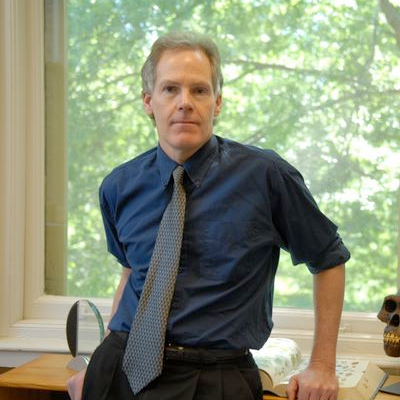Understanding poor academic outcomes and how to remediate them
Mathematics is the key to success in scientific, technological, engineering, and mathematics fields, and influences employment and wage opportunities in many blue-collar occupations. Unfortunately, almost one out of four adults in the United States do not have the basic mathematical skills needed for today’s job market or to cope with the routine quantitative demands of day-to-day living. Dr. David Geary, Curators’ Professor of Psychology and Interdisciplinary Neuroscience at the University of Missouri, is focused on identifying the causes of poor academic outcomes and how to remediate them. Surprisingly, the risk of long-term innumeracy begins before children enter 1st grade, with children who start 1st grade behind their peers tending to stay behind throughout schooling and into adulthood, independent of intelligence or reading ability. Dr. Geary is taking a scientific approach to address the challenges that children face in the classroom and to develop ways to combat these challenges, with a specific focus on mathematics.
As a leader in the field, Dr. Geary was on the President’s National Mathematics Advisory Panel and was also appointed to the National Advisory Board for the Institute of National Sciences. Based on his research on mathematical cognition and learning he received a MERIT award from the National Institutes of Health, which is given to less than 2% of funded researchers. Among other contributions, Dr. Geary’s ten year, kindergarten to 9th grade, longitudinal study is the longest and most comprehensive study of children’s mathematical development and learning disabilities ever conducted; results from the study have been featured in the New York Times, USA Today, and many other sources. His experienced team of passionate scientists, in addition to his collaborations internationally, are developing and paving the way towards addressing the issues of our current education system.
Current research includes:
-
Preschool Children: Children who enter 1st grade behind their peers in a basic understanding of numbers and simple arithmetic are at risk for long-term poor achievement in mathematics throughout school and functional innumeracy in adulthood. Dr. Geary is identifying preschool children’s early quantitative competencies that predict their readiness to learn formal mathematics in school. He and his team are also studying the cognitive factors and early mathematical competencies that predict high school students’ ease of learning algebra. In a 10 year NIH funded project, they have identified the first grade numerical competencies that predict long-term outcomes in mathematics, independent of sex, race, family background, intelligence, reading skills, and other factors.
-
9th Graders and Algebra: High school algebra is a gateway course. Without a solid background in algebra, students' opportunities for entry into STEM (science, technology, engineering, and mathematics) fields is greatly diminished, as is their ability to complete basic college mathematics courses required for many non-STEM degrees. Dr. Geary and his team have studied 9th graders’ algebra competencies and are making progress on identifying sources of learning deficits. In the future, they hope to conduct a longitudinal study to follow students’ mathematical development throughout high school and into early adulthood.
-
Sex Differences in Vulnerability: Why does poor nutrition during adolescence affect the height and physical fitness of boys more than girls, but the early stages of Alzheimer’s disease affect the language competencies of women more than men? Traits that have been elaborated through social competition or mate choices are especially vulnerable to disruption by exposure to environmental and social stressors. Dr. Geary and his team are identifying sex- and species-specific traits whose development and expression are vulnerable to disruption by disease, poor nutrition, social stressors, and exposure to man-made toxins (e.g., environmental toxins and chemotherapy).
Bio
Dr. Geary has been studying how children learn mathematics and how children and adults solve mathematical problems for 30 years, and is the author of the first comprehensive book on the topic. He served on the President’s National Mathematics Advisory Panel and chaired the panel’s learning processes task group. The National Science Foundation and the National Institutes of Health (NIH) have supported Dr. Geary’s research, and he is a recipient of a prestigious MERIT award from NIH. Dr. Geary designed and directed a 10-year kindergarten to high school study of children’s mathematical development and, among other results, identified the key number knowledge at school-entry that predicts employment related quantitative skills in adolescence. His research group is now working to identifying the quantitative knowledge that will support preschooler’s learning of this critical school-entry number knowledge. His work has been featured in many media outlets, including the New York Times and USA Today.
As a high school student, Dr. Geary was always interested in mathematics and science courses. As he advanced through his undergraduate courses and later, his graduate level courses, he found that while his excitement over the sciences remained constant, he also wanted to use his success in academics to make a difference in the world. Growing up with a brother who is autistic, Dr. Geary also thought about the ways in which the education system impacted students that were not as successful as he was academically. Therefore, his interests in the sciences paired with his passions for making the world a better place, have culminated in a career pursuing science and translating basic research into real-world practices.
Dr. Geary’s research interests and experiences are wide-ranging including studies of prenatal toxin exposure on behavior and cognition in mice to young children’s learning of mathematics and mathematical learning disabilities. While he cares deeply about improving education, he has also contributed significantly to our understanding of how our evolutionary history is expressed in the modern world. Perhaps he says it best when asked why he cares about research saying, “I think it’s important and it makes a contribution to society.”
Dr. Geary has been a student of Taekwondo for 19 years and is a 3rd degree black belt.


